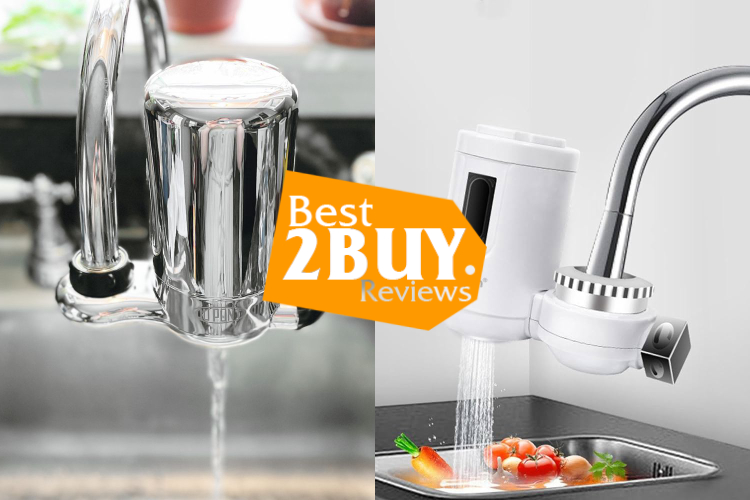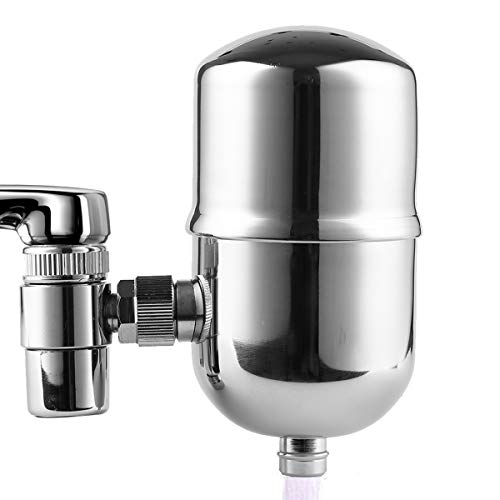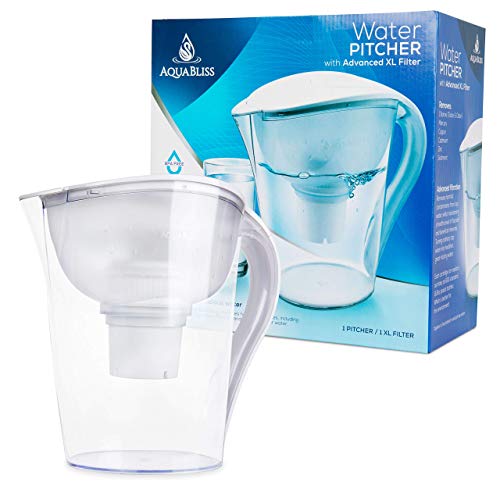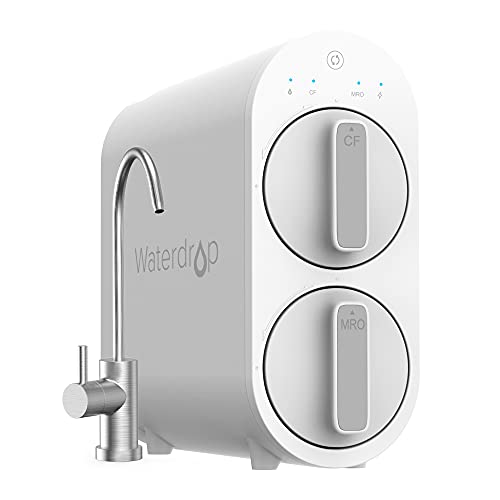Faucet Mounted Water Filters: Everything You Need To Khow

- 1. Faucet Mounted Water Filters: Everything You Need To Khow
- 1.1. Understanding Faucet Mounted Water Filters
- 1.2. Benefits of Faucet Mounted Water Filters
- 1.2.1. Enhanced Water Quality
- 1.2.2. Convenience and Cost-Efficiency
- 1.2.3. Environmental Impact
- 1.3. The Cons of Faucet-Mounted Water Filters
- 1.4. Considerations When Choosing a Faucet Mounted Water Filter
- 1.4.1. Water Filtration Technology
- 1.4.2. Filter Longevity and Replacement
- 1.4.3. Water Flow Rate
- 1.4.4. Compatibility and Installation
- 1.4.5. Contaminant Removal
- 1.4.6. Cost and Maintenance
- 1.4.7. Certifications and Testing
- 1.4.8. Additional Features
- 1.5. Conclusion
Clean, safe water is fundamental to good health. However, many people around the world are exposed to water sources that may contain impurities, contaminants, or chemicals. To combat this, various water filtration systems have been developed, and one popular and convenient option is the faucet-mounted water filter.
Understanding Faucet Mounted Water Filters
Mounted directly onto a standard kitchen faucet, faucet water filters present compact and easily installable filtration systems. Their purpose is to eliminate impurities from tap water, guaranteeing a purer and more secure drinking experience. These filters operate by guiding water through various filtration layers comprising activated carbon, ceramic, and specialized materials, effectively capturing contaminants like sediment, chlorine, lead, volatile organic compounds (VOCs), and other potentially harmful substances frequently present in tap water.
Benefits of Faucet Mounted Water Filters
Enhanced Water Quality
Faucet-mounted water filters employ state-of-the-art filtration technology, effectively eliminating various contaminants like chlorine, lead, bacteria, and other harmful substances commonly present in tap water. By eradicating these impurities, these filters ensure the provision of cleaner, purer, and safer water suitable for consumption.
- Chlorine Removal: Typically used to sanitize water, chlorine often imparts an unpleasant taste and odor. Faucet-mounted filters effectively eliminate this chemical, resulting in a noticeable improvement in water taste and smell.
- Reduced Lead Content: Addressing the serious health risks associated with lead contamination in tap water, these filters significantly diminish lead presence, ensuring a safer water supply, particularly beneficial for children and expectant mothers.
- Elimination of Bacteria and Viruses: Some faucet-mounted filters possess the capability to remove harmful microorganisms like bacteria and viruses, delivering an additional layer of defense against waterborne diseases.
Convenience and Cost-Efficiency
Faucet-mounted water filters present a convenient and cost-effective alternative to other water filtration systems. They can be effortlessly installed on standard faucets without the need for professional assistance or additional plumbing. Additionally, they are affordable and entail minimal maintenance.
- Easy Installation: Thanks to their uncomplicated design, faucet-mounted filters can be affixed to the faucet within minutes, offering a hassle-free solution for immediate access to clean water.
- Economical Solution: In comparison to under-sink or whole-house water filtration systems, faucet-mounted filters are relatively inexpensive, making them an appealing choice, especially for those operating on a tight budget.
- Low Maintenance: Most faucet-mounted filters require cartridge replacement every few months, a cost-effective and straightforward process.
Environmental Impact
Opting for faucet-mounted water filters allows individuals to contribute to the reduction of plastic waste and minimize their environmental footprint. Instead of relying on bottled water, which significantly adds to plastic pollution, faucet-mounted filters enable the consumption of tap water without compromising on taste and purity.
- Reduced Plastic Waste: Statistics indicate that around 8 million metric tons of plastic enter the ocean annually. Embracing faucet-mounted filters aids in reducing plastic bottle usage, contributing to a cleaner and healthier environment.
- Energy Efficiency: Unlike bottled water, which necessitates transportation and refrigeration, faucet-mounted filters have a minimal carbon footprint as they do not rely on energy-intensive processes, thereby reducing the overall environmental impact.
The Cons of Faucet-Mounted Water Filters
- Restricted Filtration Capacity: Faucet-mounted filters typically possess a more constrained filtration capacity when compared to larger filtration systems. Consequently, they may necessitate more frequent filter replacements, contingent on your water consumption.
- Diminished Water Flow: Certain faucet-mounted filters might result in a marginal reduction in water flow, which can be inconvenient in situations where a higher flow rate is necessary.
- Compatibility Challenges: Not all faucets are compatible with faucet-mounted filters. It's crucial to verify your faucet's compatibility before acquiring a filter to avert any potential issues.
- Limited Contaminant Removal: Although faucet-mounted filters can effectively diminish many common contaminants, they might not eliminate specific chemicals or heavy metals present in the water, necessitating the use of a more advanced filtration system.
- Aesthetic Considerations: Some individuals find that faucet-mounted filters may not harmonize well with their kitchen decor. Nonetheless, numerous models now offer stylish designs and color options to complement various styles.
Considerations When Choosing a Faucet Mounted Water Filter
Picking the appropriate faucet-mounted filter involves a series of vital considerations to ensure that you select the most fitting system for your requirements. Below are crucial elements to bear in mind when seeking a faucet-mounted water filter:
Water Filtration Technology
Different filters utilize various technologies for water purification. Understanding these mechanisms is key to selecting the most suitable option for your specific needs. Common technologies include carbon filtration, reverse osmosis, and ceramic filters. Carbon filters excel at eliminating chlorine, sediment, and certain contaminants. Reverse osmosis systems provide comprehensive filtration by removing smaller particles, heavy metals, and microorganisms. Ceramic filters are effective against bacteria and protozoa. Choose a technology that targets the contaminants present in your water supply.
Filter Longevity and Replacement
Consider the filter's lifespan and ease of replacement. Most filters have a specified lifespan measured in gallons or months. Opt for a system with filters that have a longer life and are easily replaceable. Additionally, check for indicators or reminders that indicate when it's time to change the filter. Regular replacements are crucial to maintain the filter’s effectiveness in delivering clean water.
Water Flow Rate
Certain water filters may decrease the water flow from the faucet. Assess the filter's flow rate as it can differ among models. Striking a balance between filtration efficiency and adequate water flow is important. Choose a filter that doesn’t significantly affect water pressure or flow, providing a practical equilibrium between filtration and convenience.
Compatibility and Installation
Ensure that the chosen filter is compatible with your faucet. Most faucet-mounted filters have a universal fit, but it's wise to double-check. Installation should be simple, requiring minimal or no tools. Some filters offer multiple adaptors or easy-click mechanisms, simplifying the setup process. Confirm that the selected filter aligns with your faucet type and kitchen setup.
Contaminant Removal
Know the contaminants in your water supply. Different filters target specific impurities. If your water contains elements such as lead, chlorine, fluoride, or sediments, choose a filter designed to eliminate those particular contaminants. Review the filter specifications or seek guidance from the manufacturer to ensure it addresses your water concerns.
Cost and Maintenance
Consider the initial cost of the filtration system along with ongoing maintenance expenses. Evaluate the filter’s price, replacement cartridge cost, frequency, and any additional maintenance needs. While some systems might have a higher initial cost, they could prove more cost-effective in the long run due to longer-lasting filters.
Certifications and Testing
Seek filters certified by reputable organizations such as NSF, ANSI, or the Water Quality Association. These certifications validate the filter’s performance and its ability to remove specific contaminants. Ensuring that the filter has undergone rigorous testing and meets industry standards is vital for reliability.
Additional Features
Some filters offer supplementary features like multiple filtration stages, extra accessories, or adjustable settings for different water types. These additional features could be advantageous based on your specific needs.
Conclusion
Faucet-mounted water filters provide a straightforward and efficient means to enhance the quality of your home's drinking water. Their convenience, affordability, and capacity to deliver fresh, delightful-tasting water make them an optimal option for households seeking to upgrade water quality without major expenses or intricate setups. By focusing on health and eco-friendliness, these filters offer a convenient and attainable method to guarantee that the water you consume is devoid of detrimental impurities. To fully relish the advantages of purer, safer water for your family, it's essential to consider your specific requirements when selecting a faucet-mounted water filter, making a well-informed choice.











